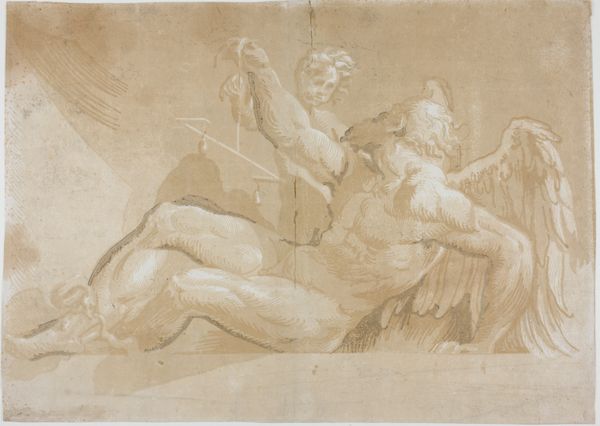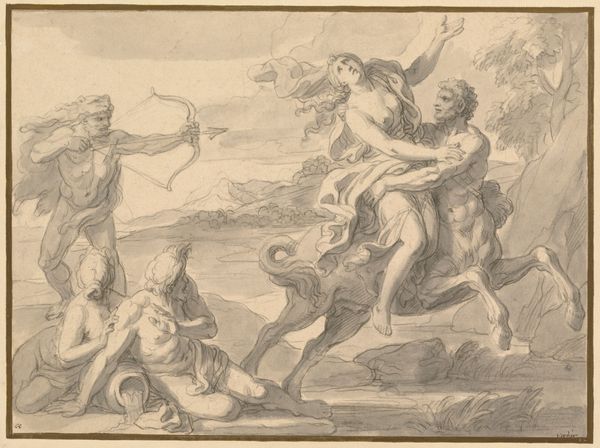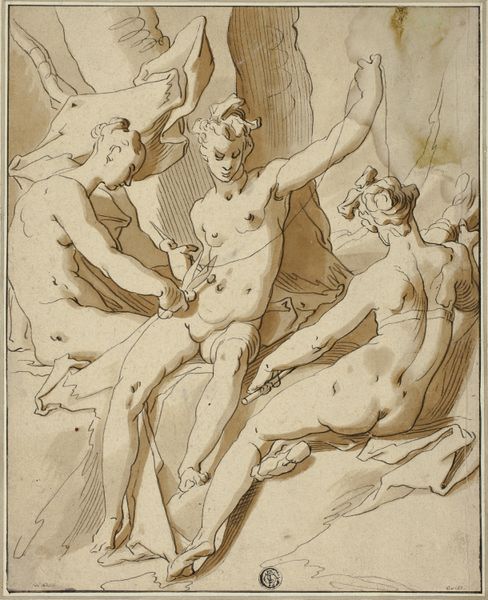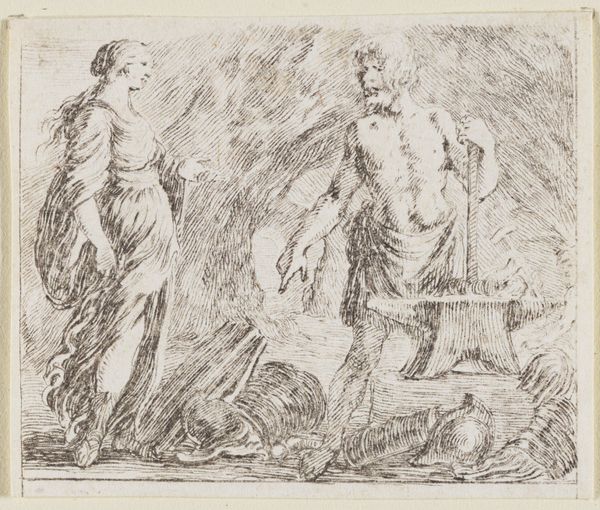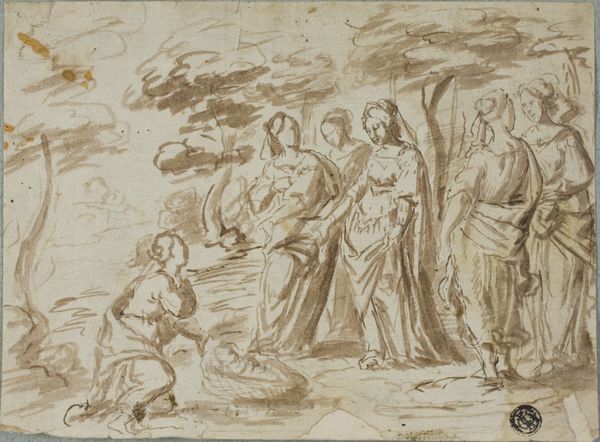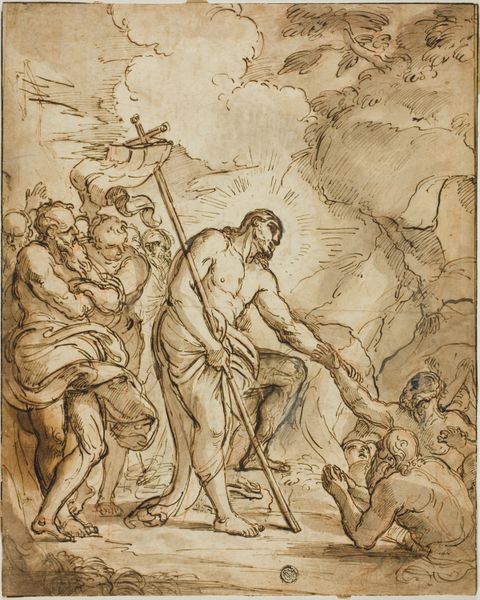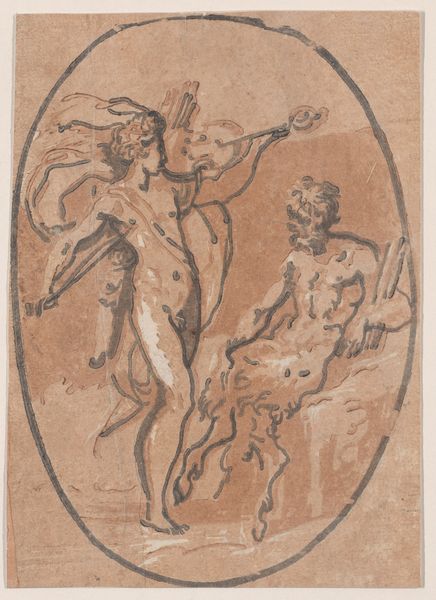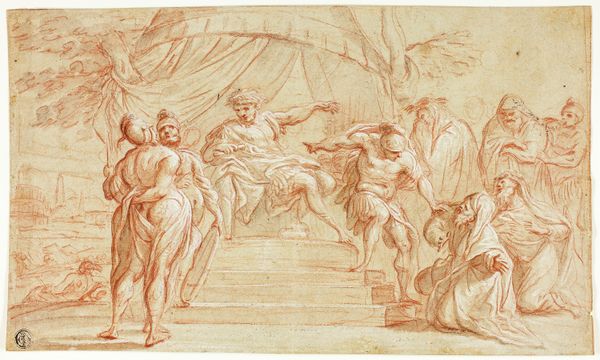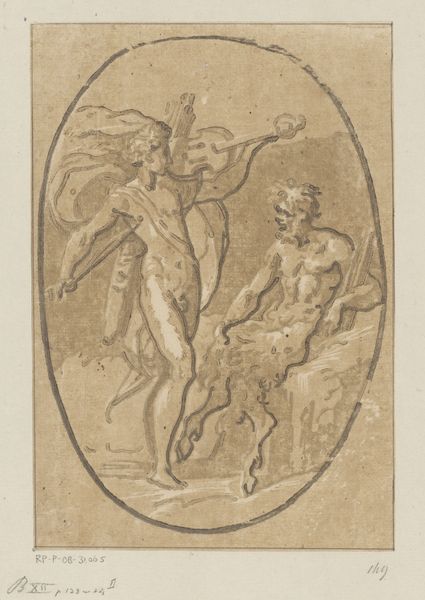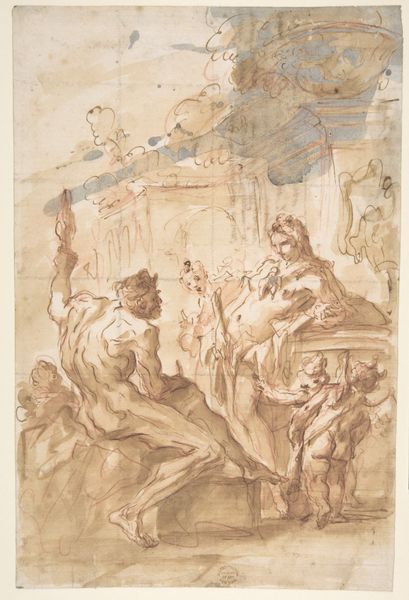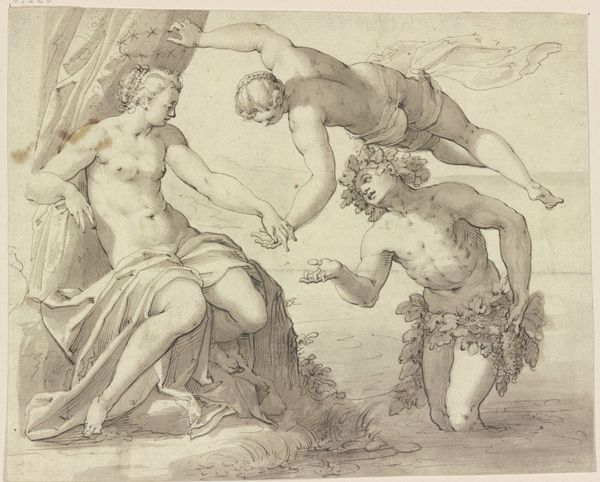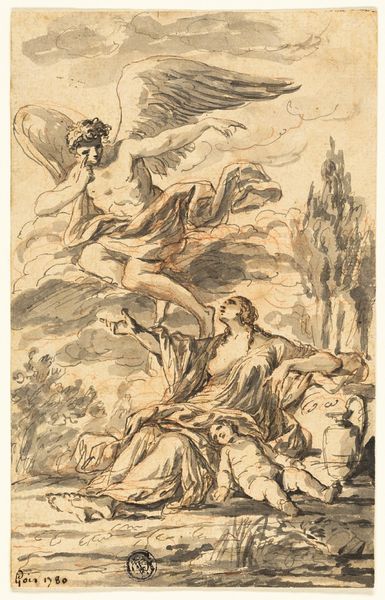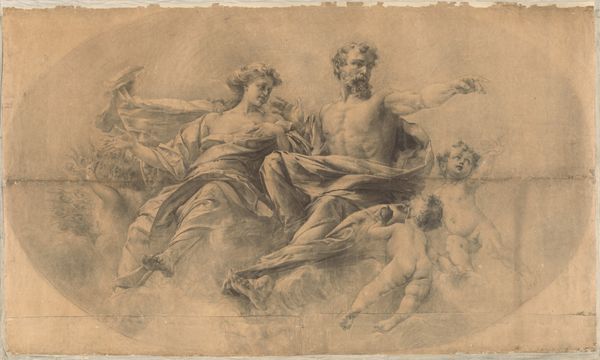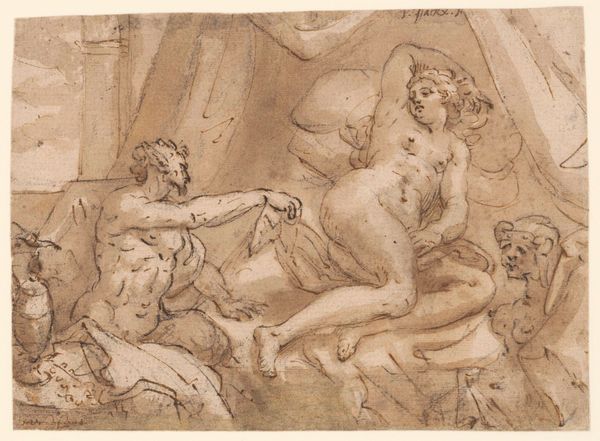
Prometheus holt das Feuer vom Sonnenwagen und belebt den Menschen c. 1524 - 1527
0:00
0:00
drawing, paper, ink, chalk
#
drawing
#
high-renaissance
#
etching
#
figuration
#
paper
#
ink
#
chalk
#
watercolour illustration
#
history-painting
Copyright: Public Domain
Paolo Farinati, an artist active in Verona, Italy, made this drawing titled *Prometheus Steals Fire from the Sun Chariot and Enlivens Mankind*, sometime between 1524 and 1606 using pen and brown ink with brown wash over traces of black chalk. The story of Prometheus is one of defiance, the triumph of humanity over the gods. Here, Farinati depicts Prometheus as a muscular, god-like figure, challenging the divine order, while another man sits beside him. The figures are nude, emphasizing their vulnerability but also their potential. Consider the cultural context of 16th-century Italy, where the Renaissance was in full swing, and the revival of classical antiquity was influencing art and thought. Farinati's choice to depict this myth suggests an interest in the era’s themes of humanism, where humanity, not the divine, is at the center of the narrative. It invites us to consider the complex relationship between power, knowledge, and the human condition. What does it mean to take something that is not freely given? What are the consequences of such an act?
Comments
No comments
Be the first to comment and join the conversation on the ultimate creative platform.
